
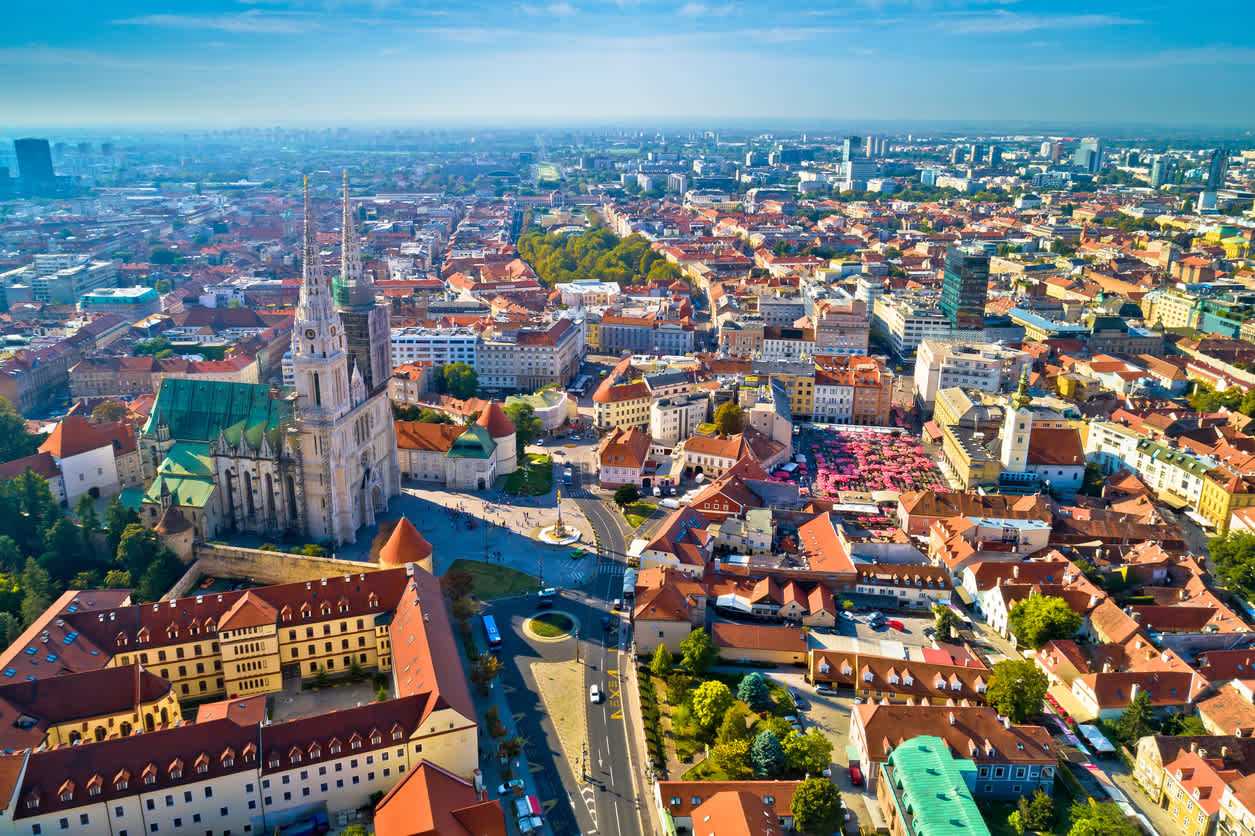
Kroatien (kroatisch [xř̩ʋaːtskaː], amtlich Republik Kroatien, kroatisch ) ist ein Staat in der Übergangszone zwischen Mittel- und Südosteuropa. Kroatien ist Mitglied der Europäischen Union, der NATO, der Welthandelsorganisation, der OSZE und der Vereinten Nationen. Hauptstadt und größte Stadt ist Zagreb, zu den weiteren Großstädten zählen Split, Rijeka und Osijek.
Das Staatsgebiet liegt östlich des Adriatischen Meeres und zum Teil im Südwesten der Pannonischen Tiefebene. Es grenzt im Nordwesten an Slowenien, im Norden an Ungarn, im Nordosten an Serbien, im Osten an Bosnien und Herzegowina und im Südosten an Montenegro. Das Gebiet der einstigen Republik Ragusa (Dubrovačka Republika), das heute den südlichsten Teil des Staates ausmacht, verfügt über keine direkte Landverbindung zum übrigen Staatsgebiet, da der wenige Kilometer breite Meereszugang von Bosnien und Herzegowina dazwischen liegt; das Gebiet um Dubrovnik bildet damit die einzige Exklave des Landes.
克罗地亚共和国(克罗地亚语:Republika Hrvatska),通称克罗地亚(克罗地亚语:Hrvatska,音译赫尔瓦茨卡),是一个位于中欧、地中海和巴尔干半岛交会处的单一议会共和制国家,首都与最大城市为萨格勒布。克国将行政区划分为20个县与一个直辖市兼首都的萨格勒布,其领土面积为56,538平方公里。克罗地亚气候多样,同时具备大陆性与地中海型气候,并于亚得里亚海沿岸拥有超过1000座岛屿。2019年克罗地亚人口约为407万人,多数为克罗地亚人,自从克罗地亚由南斯拉夫独立后至今该国如同大部分巴尔干半岛国家一样人口持续减少。
克罗地亚民族自公元7世纪迁移到现在的克国领土生活,他们于9世纪时建立了两个公国,后于925年由托米斯拉夫将其统一为王国,并成了第一位国王。其历史是一连串与保加利亚第一帝国、拜占庭帝国和匈牙利王国的冲突,并与威尼斯竞争亚德里亚海东岸。该王国从10世纪开始在统治区域推广克罗地亚语并因此与教宗发生冲突。11世纪后期克罗地亚试图保卫其被拜占庭帝国侵犯的达尔马提亚,此时王国在佩塔尔·克雷希米尔四世(1058年-1074年)与狄米塔·兹沃尼米尔(1075年-1089年)统领时期发展到鼎盛。公元1091年斯特凡二世去世,特皮米洛维齐王朝绝嗣,克罗地亚发生继承内战,直到1102年王位由匈牙利国王卡尔曼继位,克罗地亚与匈牙利组成共主联邦。1463年,奥斯曼帝国征服了波斯尼亚,对克罗地亚构成相当的威胁,随后前者又继续扩张,克罗地亚于是与奥斯曼帝国展开近百年的抵抗战争。面对帝国的威胁,1527年,克国议会推选哈布斯堡王朝的奥地利国王——斐迪南一世为克罗地亚国王,随后约四百年里,克罗地亚的统治权在匈牙利与奥地利帝国之间多次易手。
1918年,第一次世界大战结束,奥匈帝国解体,独立出了包括克罗地亚领土在内的斯洛文尼亚人-克罗地亚人和塞尔维亚人国,这个短命的政权后来成为南斯拉夫王国。1941年4月,南斯拉夫王国被轴心国入侵,南斯拉夫战役爆发,王国被德、义、匈牙利王国和保加利亚王国支解,纳粹德国和意大利王国于当地包括波黑在内扶持了傀儡政权——克罗地亚独立国。战后,克罗地亚独立国灭亡,克人成立共和国加盟“南斯拉夫联邦人民共和国”,成为社会主义国家。1991年6月,克罗地亚宣布自南斯拉夫联邦独立,其宣言于同年10月8日开始生效。随后爆发与反对国家分裂的联邦军之间的战争,经过长达四年的战事,克国取得了胜利,成为主权国家。
克罗地亚至今已是个极高人类发展指数的国家,国民拥有全民健康保险和免费的中小学教育,国家也积极透过企业和公家机关推展文化、媒体与出版产业。克国经济以服务业为主,其次为工业和农业,国家也掌控了部分的经济结构,并给予大量的财政支持。国际货币基金组织将该国列为新兴发展中的经济体,而世界银行也将其评作高收入国家。克国最重要的贸易伙伴为欧盟,也因此自2000年起,克国政府开始大量投资基础设施,特别是泛欧走廊一带的交通线。克国同时也为联合国、欧洲委员会、北大西洋公约组织、世界贸易组织、中欧自由贸易协定和地中海联盟的成员国,2013年7月1日还加入了欧盟,成为其第28个成员国。克罗地亚也积极参与联合国维和部队事务,同北约驻军于阿富汗,亦于2008至2009年担任联合国安理会的非常任理事国。
クロアチア共和国(クロアチアきょうわこく、Republika Hrvatska)、通称クロアチアは、東ヨーロッパ、バルカン半島に位置する共和制国家である。首都はザグレブ。
本土では西にスロベニア、北にハンガリー、東にボスニア・ヘルツェゴビナ、セルビアと国境を接している。南はアドリア海に面し対岸はイタリア、飛び地のドゥブロヴニクでは東にモンテネグロと接している。
Croatia (/kroʊˈeɪʃə/ (![]() listen), kroh-AY-shə; Croatian: Hrvatska, pronounced [xř̩ʋaːtskaː]), officially the Republic of Croatia (Croatian: Republika Hrvatska, (
listen), kroh-AY-shə; Croatian: Hrvatska, pronounced [xř̩ʋaːtskaː]), officially the Republic of Croatia (Croatian: Republika Hrvatska, (![]() listen)),[e] is a country at the crossroads of Central and Southeast Europe on the Adriatic Sea. Croatia borders Slovenia to the northwest, Hungary to the northeast, Serbia to the east, Bosnia and Herzegovina and Montenegro to the southeast, and shares a maritime border with Italy to the west and southwest. Its capital and largest city, Zagreb, forms one of the country's primary subdivisions, with twenty counties. Croatia has an area of 56,594 square kilometres (21,851 square miles) and a population of 4.07 million.
listen)),[e] is a country at the crossroads of Central and Southeast Europe on the Adriatic Sea. Croatia borders Slovenia to the northwest, Hungary to the northeast, Serbia to the east, Bosnia and Herzegovina and Montenegro to the southeast, and shares a maritime border with Italy to the west and southwest. Its capital and largest city, Zagreb, forms one of the country's primary subdivisions, with twenty counties. Croatia has an area of 56,594 square kilometres (21,851 square miles) and a population of 4.07 million.
The Croats arrived in the 6th century and organised the territory into two duchies by the 9th century. Croatia was first internationally recognised as independent on 7 June 879 during the reign of Duke Branimir. Tomislav became the first king by 925, elevating Croatia to the status of a kingdom. During the succession crisis after the Trpimirović dynasty ended, Croatia entered a personal union with Hungary in 1102. In 1527, faced with Ottoman conquest, the Croatian Parliament elected Ferdinand I of Austria to the Croatian throne. In October 1918, the State of Slovenes, Croats and Serbs, independent from Austria-Hungary, was proclaimed in Zagreb, and in December 1918, merged into the Kingdom of Yugoslavia. Following the Axis invasion of Yugoslavia in April 1941, most of Croatia was incorporated into a Nazi installed puppet state, the Independent State of Croatia. A resistance movement led to the creation of the Socialist Republic of Croatia, which after the war became a founding member and constituent of the Socialist Federal Republic of Yugoslavia. On 25 June 1991, Croatia declared independence, and the War of Independence was fought for four years following the declaration.
A sovereign state, Croatia is a republic governed under a parliamentary system. It is a member of the European Union, the United Nations, the Council of Europe, NATO, the World Trade Organization, and a founding member of the Union for the Mediterranean. An active participant in United Nations peacekeeping, Croatia has contributed troops to the International Security Assistance Force and took a nonpermanent seat on the United Nations Security Council for the 2008–2009 term. Since 2000, the Croatian government has invested in infrastructure, especially transport routes and facilities along the Pan-European corridors.
Croatia is classified by the World Bank as a high-income economy and ranks very high on the Human Development Index. Service, industrial sectors, and agriculture dominate the economy, respectively. Tourism is a significant source of revenue, with Croatia ranked among the 20 most popular tourist destinations. The state controls a part of the economy, with substantial government expenditure. The European Union is Croatia's most important trading partner. Croatia provides social security, universal health care, and tuition-free primary and secondary education while supporting culture through public institutions and corporate investments in media and publishing.
La Croatie, en forme longue la république de Croatie, en croate : Hrvatska et Republika Hrvatska écouter, est un pays d'Europe centrale et du Sud, indépendant depuis 1991 lors de la dislocation violente de la Yougoslavie. Il s'étend depuis les confins de l'extrémité orientale des Alpes au nord-ouest et depuis les plaines pannoniennes au nord-est, jusqu'au littoral de la mer Adriatique au sud-sud-ouest, en passant par le massif montagneux des Alpes dinariques au centre.
Elle est entourée par la Slovénie, la Hongrie, la Serbie, la Bosnie-Herzégovine et le Monténégro. Sa capitale est Zagreb et elle est membre de l'Union européenne depuis le 1er juillet 20135, de l'OMC depuis 20006 et de l'OTAN depuis 2009.
La Croazia, ufficialmente Repubblica di Croazia (in croato Republika Hrvatska), è uno Stato indipendente dell'Unione europea con una popolazione di 4076246 abitanti nel 2019. La sua capitale è Zagabria.
Confina a nord con la Slovenia, a nord-est con l'Ungheria, a est con la Serbia, a sud con la Bosnia ed Erzegovina e il Montenegro, mentre a ovest è affacciata sul mare Adriatico. La sua superficie territoriale è di 56594 km² di cui 620 di acque interne[7].
La Croazia è una repubblica parlamentare[7] la cui lingua ufficiale è il croato. La regione istriana adotta ufficialmente il bilinguismo (croato e italiano), ma la sua attuazione varia a livello comunale[8].
Tra il 1102 e il 1918 la Croazia fu unita al Regno d'Ungheria, seguendone le sorti; fu successivamente un'unità territoriale della Jugoslavia fino al 1991 — fatta eccezione per l'effimero Stato Indipendente di Croazia, Paese-fantoccio al soldo della coalizione nazifascista dell'Asse italo-tedesco — divenendone indipendente all'inizio delle guerre dei Balcani. La Croazia aderisce alla NATO dal 1º aprile 2009[9] e dal 1º luglio 2013 è il 28º membro dell'Unione europea[2]. Al pari di Cipro, Bulgaria e Romania, la Croazia fa parte di quei Paesi sottoscrittori della convenzione di Schengen pur restando fuori dal relativo spazio per mancanza di adeguamenti tecnici, mantenendo quindi i controlli alle frontiere.
Il Paese ha due giorni di festa nazionale: il 25 giugno, anniversario dell'indipendenza dichiarata, e l'8 ottobre, anniversario di quella effettiva, dalla Jugoslavia nel 1991.
Croacia (en croata, Hrvatska, AFI: [xř̩.ʋaː.ʦkaː]), oficialmente República de Croacia (Republika Hrvatska ![]() escuchar (?·i)), es uno de los veintisiete estados soberanos que forman la Unión Europea, el cual está ubicado entre Europa Central, Europa meridional y el mar Adriático; limita al noreste con Hungría, al este con Serbia, al sureste con Bosnia-Herzegovina y Montenegro, al noroeste con Eslovenia y al suroeste con el mar Adriático; donde comparte una frontera marítima con Italia.
escuchar (?·i)), es uno de los veintisiete estados soberanos que forman la Unión Europea, el cual está ubicado entre Europa Central, Europa meridional y el mar Adriático; limita al noreste con Hungría, al este con Serbia, al sureste con Bosnia-Herzegovina y Montenegro, al noroeste con Eslovenia y al suroeste con el mar Adriático; donde comparte una frontera marítima con Italia.
Su capital y ciudad más poblada es Zagreb. Tiene 56 594 km² de extensión territorial1 —esta cifra incluye las más de mil islas (1185) que se ubican frente a la costa del mar Adriático— y cuenta con un clima variado, en su mayor parte continental y mediterráneo. En cuanto a la administración política, el país está dividido en veinte condados y la ciudad de Zagreb. Su población asciende a más de 4.29 millones de habitantes, la mayor parte de ellos son croatas de religión católica.
A principios del siglo VII los croatas arribaron a la zona y dos siglos más tarde se organizaron en dos ducados. En el año 925 Tomislav se convirtió en el primer rey, elevando el estatus del estado a un reino. El Reino de Croacia mantuvo su soberanía por casi dos siglos, y alcanzó su apogeo durante el reinado de Pedro Krešimir IV y Demetrio Zvonimir. Croacia formó una unión personal con Hungría en 1102. En 1527, amenazado por la expansión otomana, el parlamento croata eligió a Fernando I de Habsburgo como sucesor del trono croata. En 1918, tras la Primera Guerra Mundial, formó parte del efímero Reino de los Serbios, Croatas y Eslovenos, el cual se había separado de Austria–Hungría, y que posteriormente se transformó en el Reino de Yugoslavia. Durante la Segunda Guerra Mundial se fundó un Estado títere de la Alemania nazi. Luego de la guerra, Croacia fue un miembro fundador y elemento federal de la Segunda Yugoslavia, un Estado socialista. En junio de 1991 Croacia declaró su independencia, la cual fue reconocida el 8 de octubre de ese año. La guerra croata de Independencia tuvo lugar en los cuatro años sucesivos a la declaración.
En 2012 Croacia mantenía un Índice de Desarrollo Humano muy alto. El Fondo Monetario Internacional la clasificó como una economía emergente y en desarrollo, mientras que el Banco Mundial la identificó como una economía de altos ingresos. Croacia es miembro de la ONU, el Consejo de Europa, la OTAN, la Organización Mundial de Comercio y es un miembro fundador de la Unión por el Mediterráneo. Además, en julio de 2013 Croacia accedió a la Unión Europea. Como un miembro activo de las Fuerzas de paz de las Naciones Unidas, ha contribuido con tropas a la misión de seguridad de la OTAN en Afganistán y durante el periodo de 2008 a 2009 ocupó un asiento del Consejo de Seguridad de la ONU.
La economía croata está dominada por el sector servicios, seguido por la industria y la agricultura. El turismo es una fuente de ingresos importante durante el verano, ya que el país se encuentra dentro de los veinte destinos turísticos más visitados en el mundo. El Estado controla una parte de la economía, con un gasto gubernamental importante y su principal socio comercial es la Unión Europea. Desde el 2000 el país invirtió en infraestructura, especialmente en caminos y medios de transporte, así como en los corredores Pan-Europeos. El Estado croata provee de un sistema de salud universal y educación primaria y secundaria gratuita, al mismo tiempo que apoya la cultura por medio de diversas instituciones públicas e inversiones en los medios de comunicación y la literatura.
Хорва́тия (хорв. Hrvatska [xř̩ʋaːtskaː]), официально — Респу́блика Хорва́тия (хорв. Republika Hrvatska) — государство на юге Центральной Европы или в Южной Европе, частично на западе Балканского полуострова, бывшая союзная республика в составе Югославии, ставшая независимой в 1991 году. Население, по данным на 30 июня 2020 года, составляет 4 227 746 человек, территория — 56 594 км². Занимает 127-е место в мире по численности населения и 128-е по территории.
Форма правления — парламентская республика. Пост премьер-министра с 19 октября 2016 года занимает Андрей Пленкович, а пост президента с 19 февраля 2020 — Зоран Миланович.
Столица и крупнейший город — Загреб. Хорватия граничит на северо-западе со Словенией, на северо-востоке — с Венгрией и Сербией, на юге и востоке — с Боснией и Герцеговиной и Черногорией; на западе омывается Адриатическим морем и имеет морскую границу с Италией.
Государственная валюта — куна.
Страна является членом Организации Объединённых Наций с 1992 года; ОБСЕ, Совета Европы, НАТО с 2009 года; Европейского союза с 2013 года.

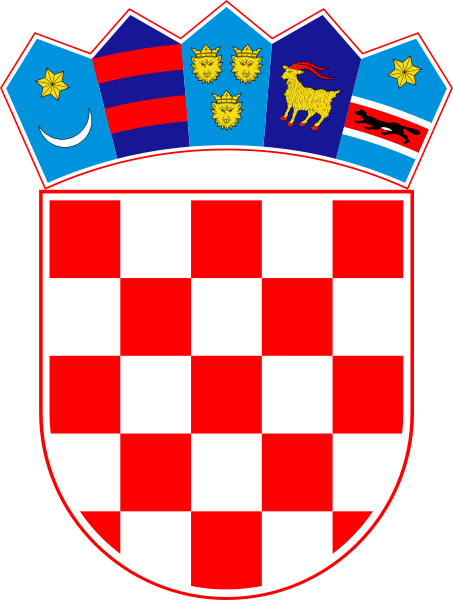
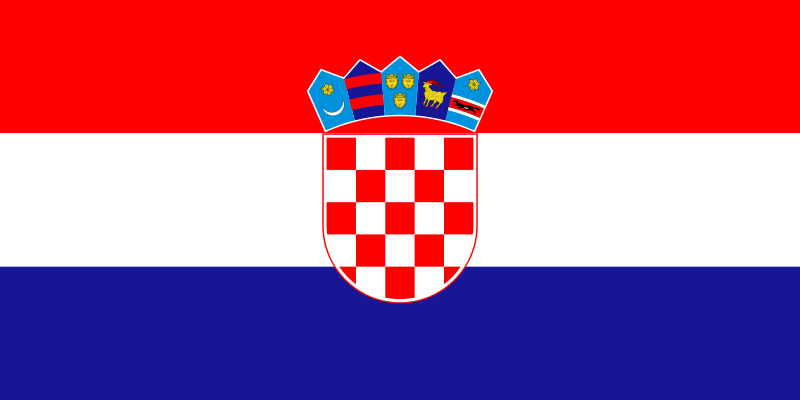


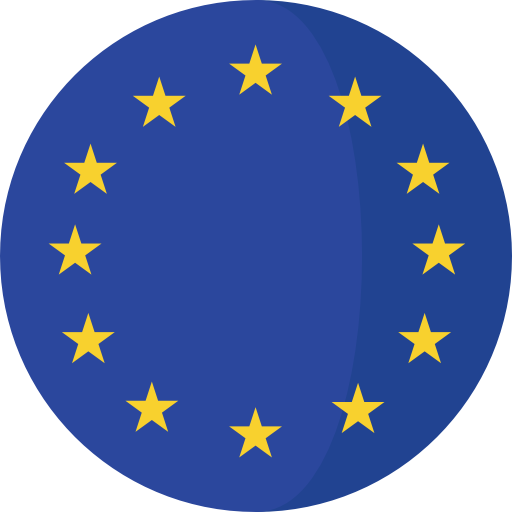

 Geography
Geography
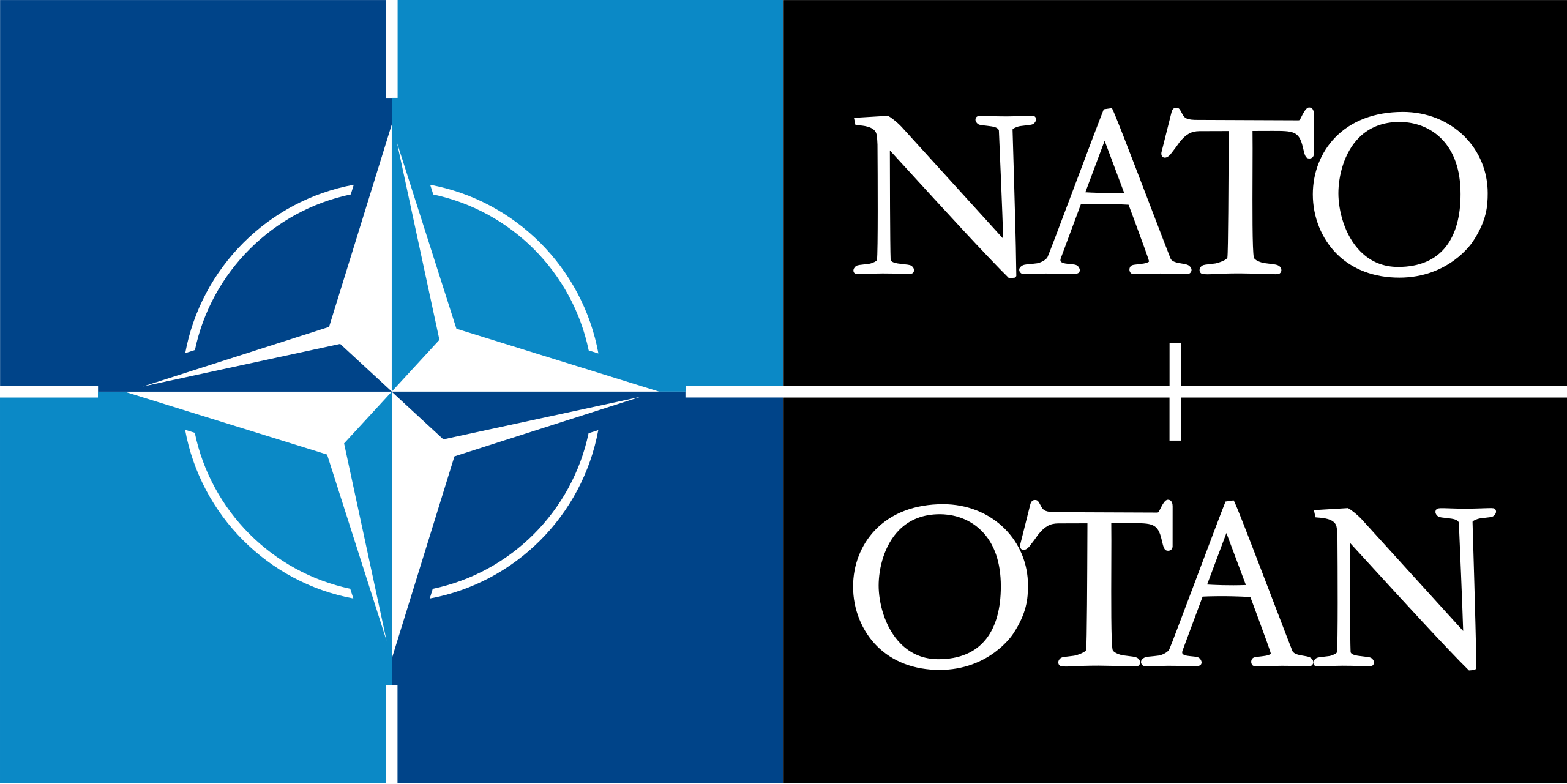 Mitglieder der NATO
Mitglieder der NATO
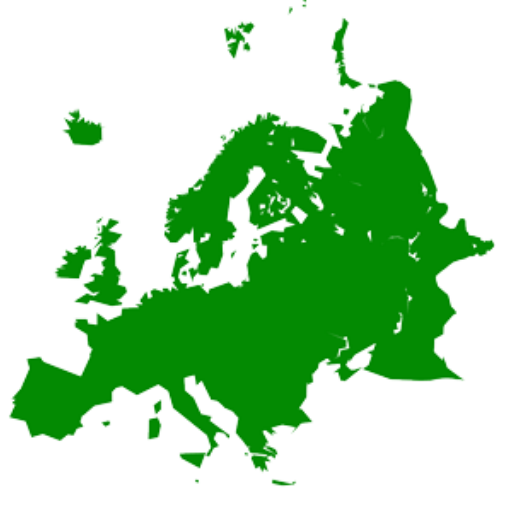 States of Europe
States of Europe





